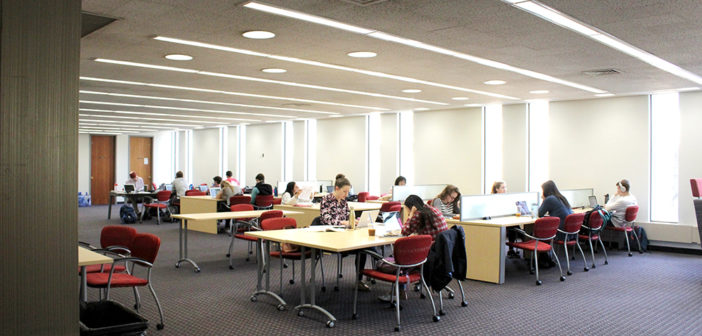The transition to remote learning has not only affected undergraduate education, but has also forced graduate school students and faculty to adjust to a new reality as well.
Graduate students will be taking their courses, finishing up their dissertations and teaching through Zoom for the rest of this semester.
Steve Savino, assistant dean for Lehigh Business Graduate Programs, said some of the graduate students experienced trouble during the first week of remote learning. He said he believes these students will adjust to the remote transition by next week.
“I think the students wanted the campus experience, but since this is not in our control, they are adjusting to the new circumstances,” Savino said.
Savino said most of the graduate school professors have previous experience teaching online classes through Zoom or Classroom Live, but others have struggled with the transition.
Ben Winn, a graduate student studying political science, said he faces the challenge of not being able to do his research in the library. He said he is concerned about not being able to receive direct feedback from his professors, and not getting the same in-class experience that is crucial to graduate school.
“It’s becoming clear that certain professors teaching styles are better adapted to technology, than those who are used to giving handouts in person,” Winn said.
Winn said he hopes that he will be able to return to campus for the summer session, which will keep him and the rest of the graduate cohort’s spirits up. He said it’s a lot to ask professors to do another entire semester online.
The average graduate class size is 15-25 students, which makes it easier for the professor to keep track of attendance and engage the entire class on Zoom, Savino said.
For students enrolled in the full-time Master’s in Public Administration program, their research and learning requires them to visit a company, interact with the senior executives, engage in executive interfaces and create a project and solution based on the company’s needs. The visits are more limited now and interfaces will be handled through Zoom rather than a company site, Savino said.
He said online courses shouldn’t affect a students’ academic performance since it is rare that any graduate student fails a course. He said this shouldn’t affect graduation, since none of the classes have been cancelled and students are still receiving stipends if needed.
There are some graduate students who may be teaching a course for the first or second time, so they and their professors may need more time to prepare their lectures on Zoom, said Ernest Lai, director of the Ph.D. Program in the business department.
Lai said students who cannot listen to their classes live can either download locally recorded lectures that are put on Google Drive, or watch it on Zoom Cloud, which takes longer to process.
Lai said that he finished a lecture at 2:50 p.m. Wednesday and didn’t receive a notification from Zoom until midnight that the recording was available for viewing.
Lai said that although graduate students typically take one course, the advanced material may be harder to process through remote learning. He said those who are scheduled to defend a dissertation are put in a tricky situation.
“Working on the dissertation itself won’t be a major issue, but we have students who are scheduled to defend,” Lai said. “We don’t have a resolution right now, but will most likely move to Zoom for their defense.”
Fourth-year graduate student and ECO 146 Professor Kevin Smith said he planned to construct his research on health insurance markets over spring break, but had to adjust his course syllabus to fit the online format. He said that economic teaching assistants will now have their recitation every Friday and their office hours on Zoom.
Jacob Dooley and Mari-Therese Burton are both first-year graduate students, seeking doctorate degrees in Material Science and Engineering.
“It’s only been a few days, but it does cause me to worry about whether I will learn as much online as I did in the classroom,” Burton said.
They both said the transition to online classes has not personally impacted them so far, but expressed concern about Lehigh possibly closing their buildings, which would delay their research.






Comment policy
Comments posted to The Brown and White website are reviewed by a moderator before being approved. Incendiary speech or harassing language, including comments targeted at individuals, may be deemed unacceptable and not published. Spam and other soliciting will also be declined.
The Brown and White also reserves the right to not publish entirely anonymous comments.